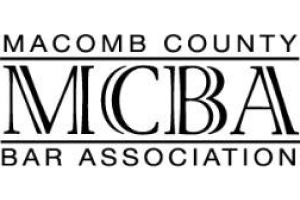A year into the “new VA regulations” it is clear that planning for VA benefits is still a viable longterm care planning strategy. On October 18, 2018 as part of a comprehensive plan to help reorganize the Department of Veterans Affairs and benefit programs themselves, the VA finally adopted new regulations affecting the non-service related…
Continue reading ›Articles Posted in Aid & Attendance
Metro Detroit and West Michigan seniors that receive VA benefits for long term care through VA Aid and Attendance Benefit, have always looked forward to the annual federal budget announcement of the Cost of Living Adjustment (COLA). This year the announcement is not favorable. The latest from the Social Security Administration is that there will…
Continue reading ›Have an IRA? Facing a long-term care planning situation? Or maybe you have a loved one with elder law needs? The biggest misconception for clients facing elder law issues is that Michigan elder law attorneys can only help veterans or adults facing nursing home placement and Medicaid planning.. This is not true. Using the same…
Continue reading ›The time has come and gone for “public comment” regarding new proposed rule changes to the VA’s non-service connected benefits program. The benefits can provide much needed relief to seniors struggling to provide for their own long term care expenses. Currently, eligible veterans or their surviving spouses can collect up to almost $2,100.00 per month…
Continue reading ›In about a month, the public commentary period for the new proposed VA regulations will end. There is still time to help our veterans and seniors that rely on non-service connected, improved pension and aid and attendance benefits. In Michigan there are about 600,000 living veterans that can become eligible for these benefits. The proposed…
Continue reading ›Michigan veterans and seniors need to express their concerns over proposed new VA regulations affecting their ability to plan for benefits. Our office supports changes to regulations in order to protect seniors and veterans in Michigan, but, changes need to be consistent with Congressional intent, the Constitution itself, and, at the very least, consistent with…
Continue reading ›Your help is needed to protect Michigan veterans and seniors. The Department of Veterans Affairs (VA) has introduced new regulations that will negatively affect your ability to receive benefits for yourself and your loved ones. New proposed regulations, introduced January 23, 2015, will create a three (3) year “look-back” period for applicants, similar to Medicaid.…
Continue reading ›Over the past few days, several attorneys that I collaborate with are scrambling to get the “word” out to our lawmakers about the VA’s proposed changes to regulations affecting eligibility for improved pension and aid and attendance benefits. In the last entry we encouraged readers to contact their representatives in the United States Congress to…
Continue reading ›On Friday our office received notice that the VA has submitted significant changes to non-service connect benefit eligibility that will directly impact Michigan Veterans and Veterans nationwide. Click here for a link to these changes. Michigan Elder Lawyers, National Academy of Elder Law members and several Veteran Service Organizations (VSO) oppose the proposed regulations. Specifically,…
Continue reading ›Michigan families in Metro-Detroit and West Michigan helping a loved one with long term care, elder law, Medicaid, and VA assistance are faced with several difficult questions. The most important question involves the type of placement that is appropriate for their loved one. Often times, nursing home care or “homes for the aged” as they…
Continue reading ›










